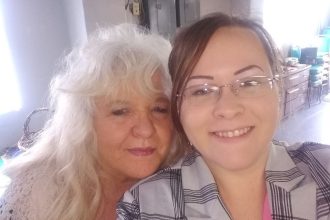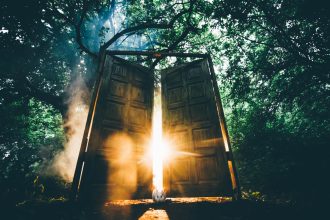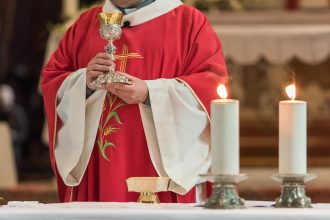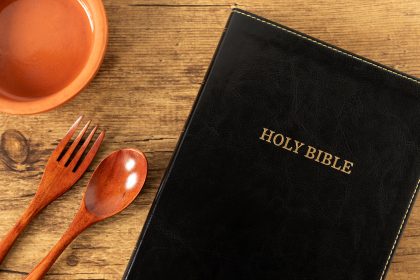Emere Godwin Bebe Okpabi, leader of Nigeria’s Ogale people, unpacked four bottles of water from his homeland and lined them up on a table to show why his subjects are suing Royal Dutch Shell in a London court.
The Nigerian water is contaminated with oil and cancer-causing compounds such as benzene. It is what his people drink every day.
Lawyers for more than 40,000 Nigerians are demanding action from Shell to clean up oil spills.
Britain’s High Court began hearing lawsuits on Tuesday filed by the Ogale and Bille people alleging that decades of oil spills have fouled the water and destroyed the lives of thousands of fishermen and farmers in the Niger River Delta, where a Shell subsidiary has operated since the 1950s.
They brought their fight to Shell’s home base because they say the Nigerian courts are too corrupt.
“Let the shareholders of Shell who are residents of the advanced world, like Britain, let them see a representative of a kingdom that is being destroyed for them to have money,” he told The Associated Press news agency on the eve the hearing. “That’s blood money.”
![Lawyers for more than 40,000 Nigerians are demanding action from Shell to clean up oil spills [Frank Augstein/AP] Lawyers for more than 40,000 Nigerians are demanding action from Shell to clean up oil spills [Frank Augstein/AP]](https://www.aljazeera.com/wp-content/uploads/2016/11/fc8d153257974d8292e2b6002c878730_18.jpeg)
The Anglo-Dutch oil giant argues that the case should be heard in Nigeria, pointing out it involves its Nigerian subsidiary SPDC, which runs a joint venture with the government, and Nigerian plaintiffs.
London law firm Leigh Day is handling the cases after it won a landmark agreement from Shell to pay $83.5m in compensation to the Bodo community for damage caused by oil spills in 2008 and 2009.
Shell originally offered $50,000 before the Bodo took their case to the same UK court.
The new lawsuits were brought by two communities located in Ogoniland, part of the oil-rich southern Niger River Delta.
They want to hold Shell, incorporated in the UK, responsible for the actions of its Nigerian subsidiary, Shell Petroleum Development Company of Nigeria Ltd, or SPDC.
The subsidiary said it has produced no oil or gas in the region since 1993.
The area is heavily affected by crude oil theft, pipeline sabotage and illegal refining.
It is arguing in court that the legal challenge is speculative and full of “legal and evidential weaknesses”.
READ MORE: Shell accused of lying over Nigeria oil spill clean-up
SPDC said it will challenge the jurisdiction of the UK courts in this case – arguing that it concerns Nigerian plaintiffs in dispute with a Nigerian company over issues in Nigeria.
“If the claimants’ lawyers are correct as to the existence of this novel duty of care, [Shell] and many other parents of multinational groups will be liable to the many hundreds of millions of people around the world with whom their subsidiaries come into contact in the ordinary course of their various operations,” the company said in its court argument.
“That would constitute a radical if not historic expansion of the law and open the floodgates to litigation on an unprecedented scale.”
The Ogale and Bille communities account for only a small portion of the millions of Nigerians that human rights activists say have been injured by contamination they say would never have been allowed in the home countries of the multinational oil companies that operate in partnership with the Nigerian government.
![Claimants brought their fight to Shell's home base because they say the Nigerian courts are too corrupt [Sunday Alamba/AP] Claimants brought their fight to Shell's home base because they say the Nigerian courts are too corrupt [Sunday Alamba/AP]](https://www.aljazeera.com/wp-content/uploads/2016/11/ad4169bb5aab40748de819f3e643d8b3_18.jpeg)
Shell was the first oil company to operate in Nigeria, starting production in 1958.
In the 1990s, the military government sent armed troops to put down protests by the Ogoni people, turning the oil-producing south into a war zone.
One of the leaders of those protests was Ken Saro-Wiwa, a writer and environmental activist whose opposition helped stop Shell’s production in Ogoniland.
He and eight others were hanged by the government of military dictator Sani Abacha in November 1995 in a case the US condemned.
Dutch court: Shell can be liable for Nigeria spills
President Muhammadu Buhari has promised a clean-up of Ogoniland, which was supposed to start in June but has been delayed.
The new lawsuits come at a time when Shell is pivoting towards other areas, such as Brazil.
It recently bought BG Group Plc for $52.4bn, increasing its proven reserves of oil and gas by 25 percent. And like other oil companies, it is also slashing jobs and postponing investments to adjust to lower oil prices.
But Shell is still seen as having deep pockets, said David Elmes, course director of the Warwick Business School’s Global Energy Research Network.
![Shell originally offered $50,000 before the Bodo tribe took their case to the same UK court [Frank Augstein/AP] Shell originally offered $50,000 before the Bodo tribe took their case to the same UK court [Frank Augstein/AP]](https://www.aljazeera.com/wp-content/uploads/2016/11/d4f8dfb1cd1f4cb49d5884de39bbef98_18.jpeg)
While Shell would argue that its settlement with the Bodo community shows its willingness to provide compensation for problems it caused, the new cases involve damage arising from what Shell says is sabotage and theft, Elmes said.
And as Shell looks to move to other countries, “people who feel they have a case against the company are looking to take action now”, he said.
In a 2011 report, the United Nations said in at least 10 communities in Ogoniland, public health was “seriously threatened” by drinking water contaminated with hydrocarbons.
In one area, the water contained the carcinogen benzene at levels 900 times higher than what the World Health Organization says is safe.
While the report recognised that oil production in the region had ceased, it criticised Shell’s oversight of the remaining facilities.
Armed group blows up major pipeline in Nigeria
The report recommended emergency measures to provide adequate drinking water. But so far nothing has been done, said Okpabi who describes himself as the paramount ruler of the Ogale people.
He brought the bottles of water to his lawyer’s office in London just to make the point.
Removing his hat and leaning forward, he argued that his people have been made poorer by the destruction of an ecosystem.
He is angry at Shell, arguing it called the shots for its Nigerian subsidiary and so should be held accountable in Britain.
“My system cannot give me justice,” Okpabi said. “There is only one place that can give me justice. That is why I am here.”
|
|
|
Locals await Niger Delta oil spill clean-up |







